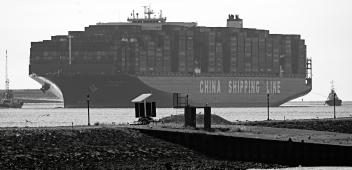Linking growth and poverty reduction in Papua New Guinea
Recent impressive economic growth has helped many Papua New Guineans escape poverty. Those lifted from poverty retain strong connections to the economy, its active participants and the government. For those whose connections are weak or absent, economic growth provides no obvious reward. To increase individuals’ share in growth, government should rethink its approach to the appraisal of foreign investments, placing greater onus on what investments offer in terms of domestic employment, in addition to government revenues.

- The low and variable poverty dividend from growth underlines the limitation of relying on GDP growth as an indicator of PNG’s development.
- Investment in human capital can increase the productivity of labour.
- The government should eliminate wasteful expenditure and fix the broken systems of service delivery.
Executive Summary
Papua New Guinea is in its seventh year of economic growth, its largest uninterrupted spell of economic expansion since independence. During this period, the level of extreme poverty in PNG is estimated to have fallen by 8.8 per cent. Yet this reduction would be insufficient to reel in the spread of poverty which is understood to have occurred over the late 1990s and early part of the last decade.
Increasing the poverty-reducing effects of growth would greatly enhance PNG’s ability to achieve the first Millennium Development Goal – to eradicate extreme poverty and hunger – by 2015. Policy-makers should consider favouring different types of growth in which more income reaches the poor and craft interventions which can better integrate the poor with the remainder of the economy.
Government should rethink its approach to the appraisal of foreign investments and encourage foreign-owned companies to reinvest their profits within PNG through fiscal incentives. In a move back to basics, the PNG government should narrow its expenditure on the provision of essential public goods and services, in recognition of its limited capacity. While the range of goods and services government attempts to provide should be circumscribed, their reach must be expanded to bridge the gap to those poor who are currently overlooked.
By placing the MDGs at the centre of their Pacific Partnerships, the Australian government is accountable and shares some of the responsibility for progress on poverty reduction in PNG. Its challenge is to revise its policies and interventions in light of this goal, which will require a more satisfactory accommodation of the role of growth.


